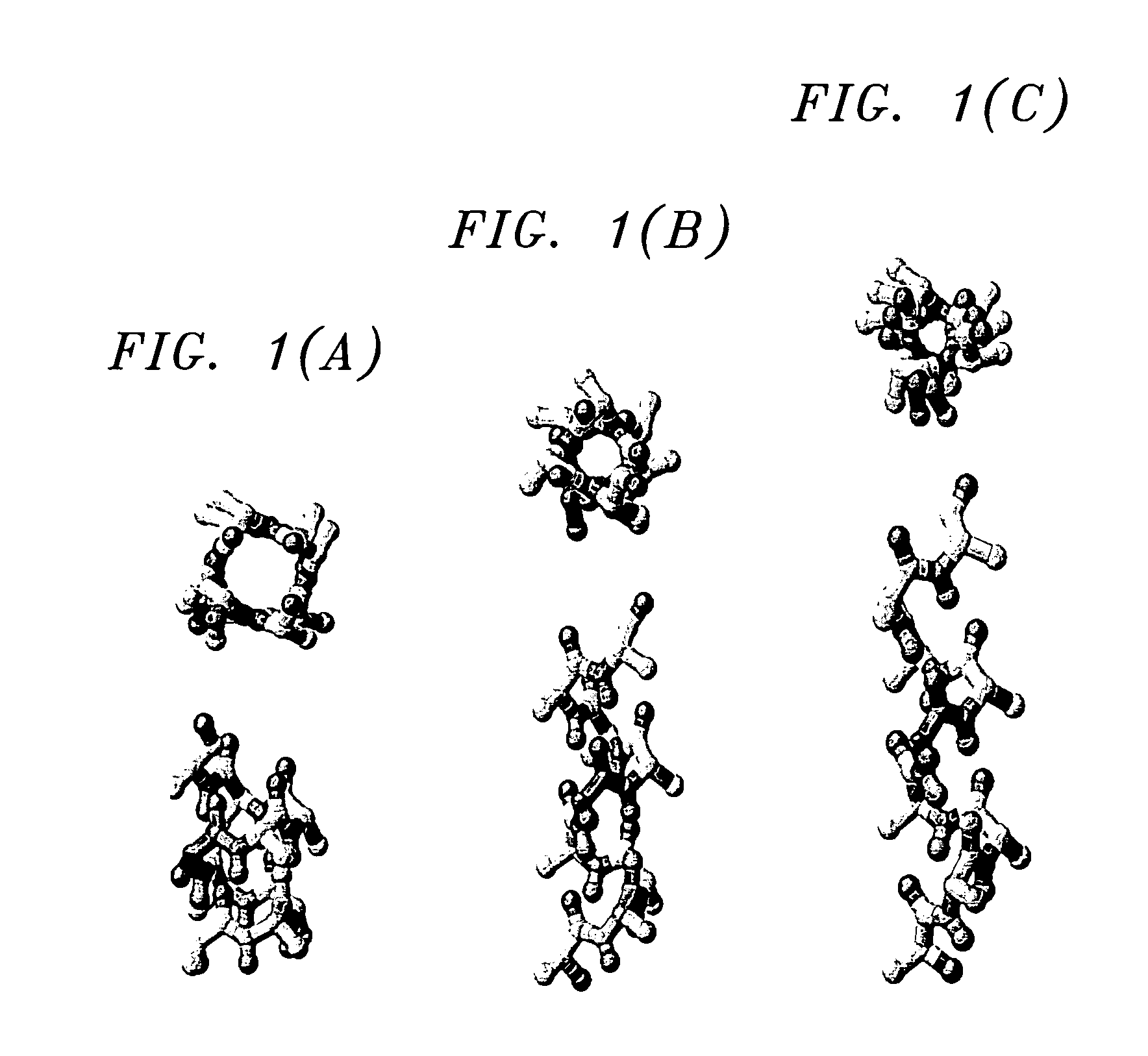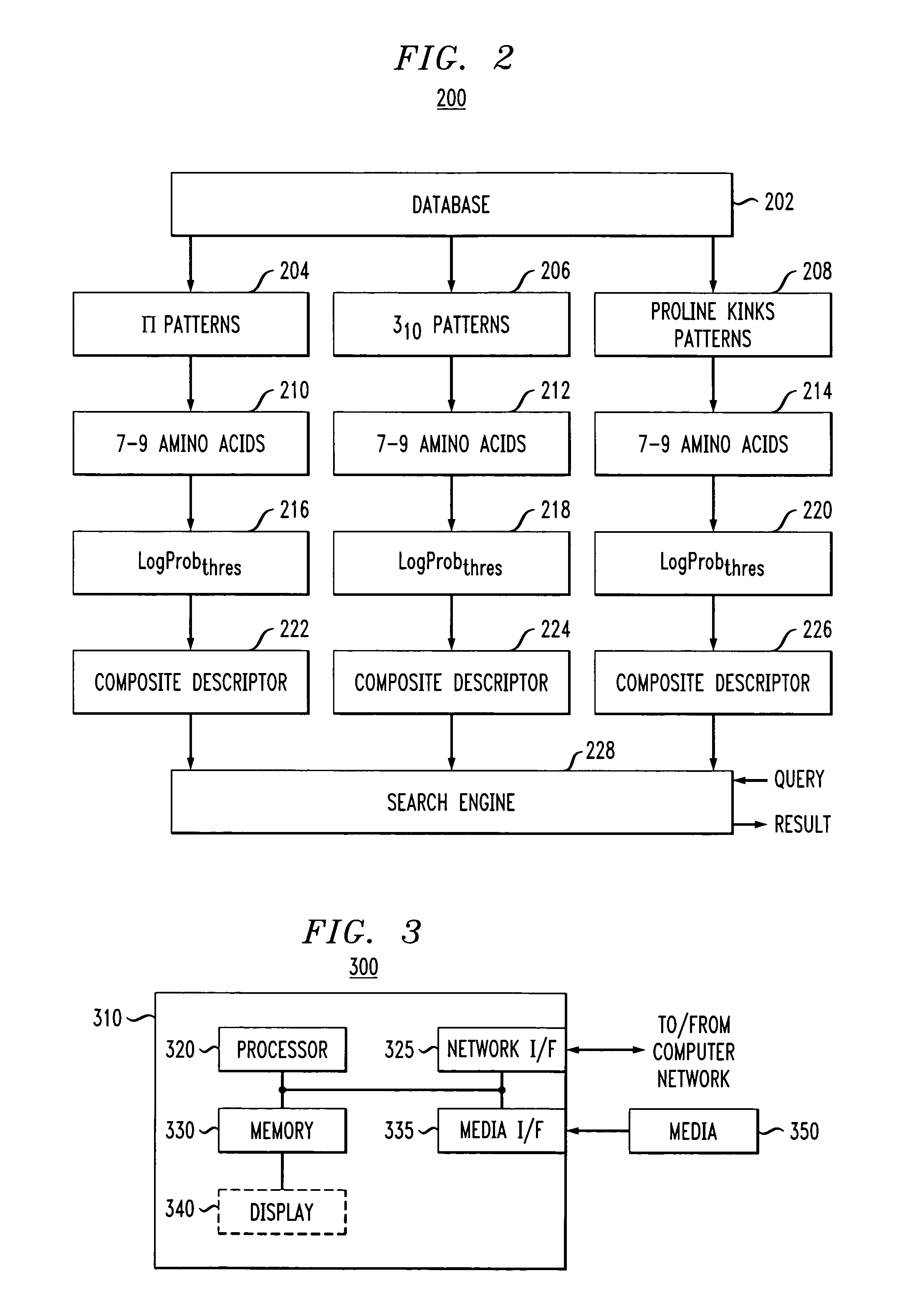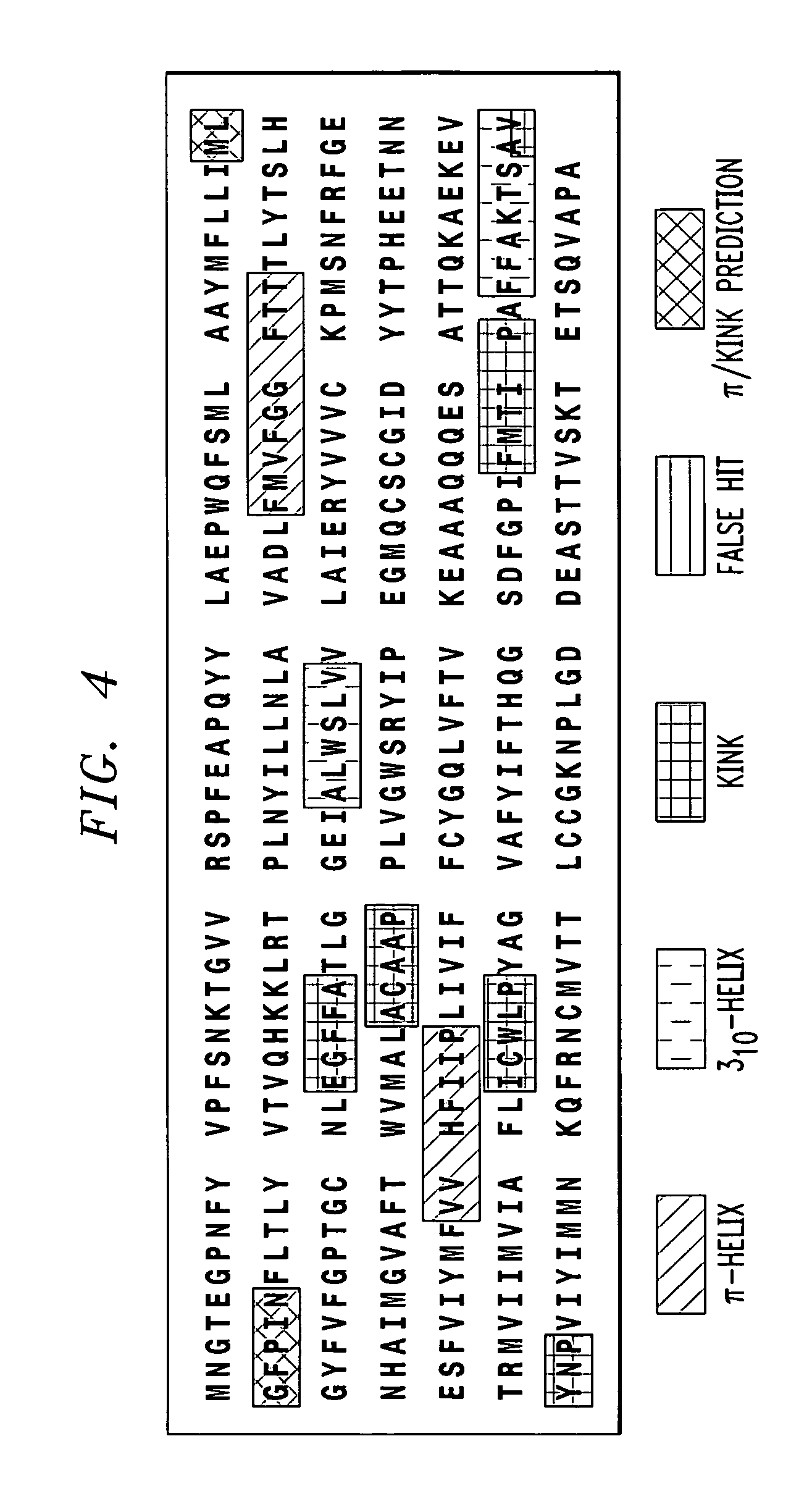Sequence pattern descriptors for transmembrane structural details
a transmembrane protein and structural detail technology, applied in the field of sequence detection, can solve the problems of inability of researchers to successfully crystallize samples, difficult to observe the three-dimensional structure of non-canonical regions, and inability to structure studies of such proteins
- Summary
- Abstract
- Description
- Claims
- Application Information
AI Technical Summary
Benefits of technology
Problems solved by technology
Method used
Image
Examples
examples
[0040]Experiments were conducted with bovine rhodopsin sequence fragments. By setting P equal to five and LogProbthres equal to −25 a complete and correct identification and labeling of all the non-canonical elements is achieved. The results are shown in FIG. 4, wherein the non-canonical features, π-like helices, 310-like helices, and proline- or non-proline-induced kink, as well as complex segments containing conformational features of both proline-induced kinks and π-like helices, are indicated by different hatching schemes defined in the legend of FIG. 4. The ability to detect complex segments is notable since such motifs are not present in the training set sequences.
[0041]Finally, the impact of the parameter settings on the non-canonical conformations identified by our pattern-based search engine are examined through processing of the bovine rhodopsin sequence. Specifically, the effects of reducing the system's stringency, i.e., by increasing LogProbthres from −25 to −23, yet ma...
PUM
| Property | Measurement | Unit |
|---|---|---|
| α-helicity | aaaaa | aaaaa |
| three-dimensional structure | aaaaa | aaaaa |
| structure | aaaaa | aaaaa |
Abstract
Description
Claims
Application Information
 Login to View More
Login to View More - R&D
- Intellectual Property
- Life Sciences
- Materials
- Tech Scout
- Unparalleled Data Quality
- Higher Quality Content
- 60% Fewer Hallucinations
Browse by: Latest US Patents, China's latest patents, Technical Efficacy Thesaurus, Application Domain, Technology Topic, Popular Technical Reports.
© 2025 PatSnap. All rights reserved.Legal|Privacy policy|Modern Slavery Act Transparency Statement|Sitemap|About US| Contact US: help@patsnap.com



